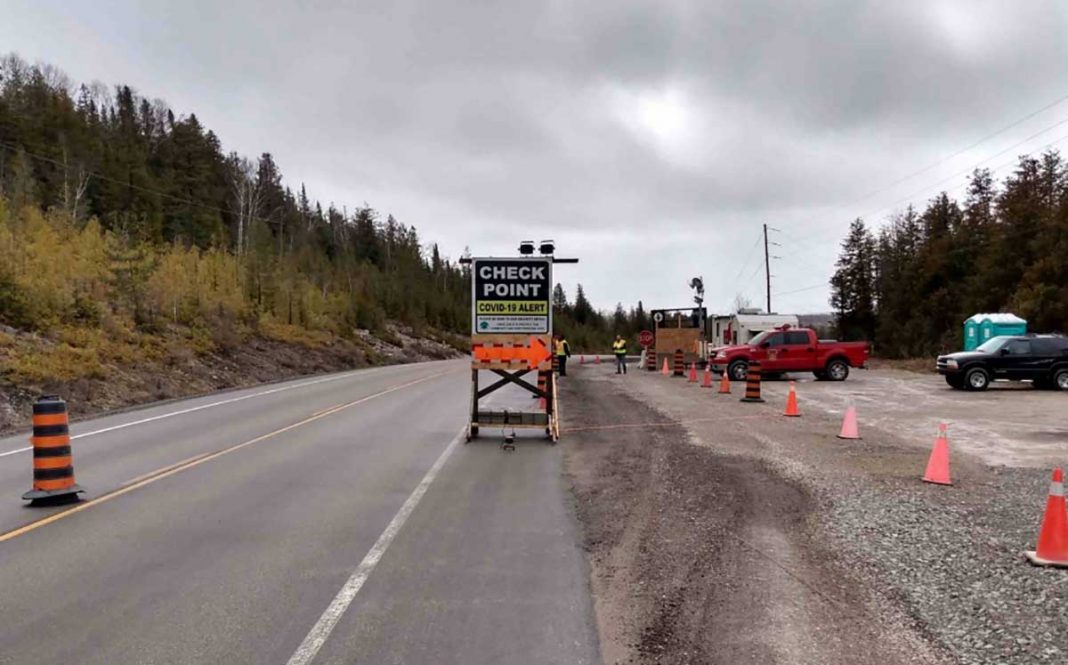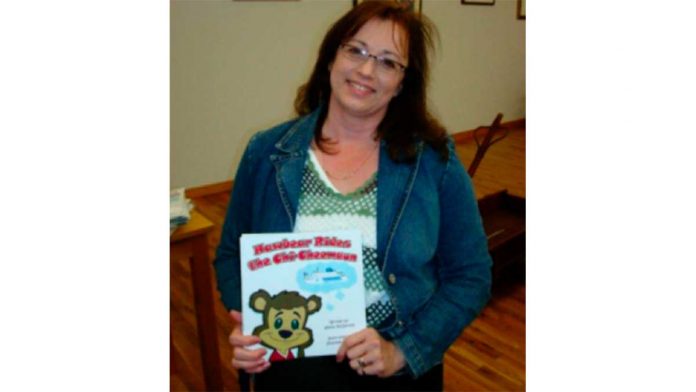M’CHIGEENG – Last week, M’Chigeeng First Nation released COVID-19 modelling for its community that showed some stark numbers in case people have become complacent or are considering relaxing their vigilance with their efforts to resist the pandemic.
Prepared by epidemiologist Dr. Jennifer Walker, a Laurentian University Canada Research Chair in Indigenous Health, the modelling document offers three different scenarios.
The first scenario is based on M’Chigeeng’s current efforts with a border closure and strict physical distancing measures. The projection states that this approach could contain COVID-19 over six months to 23 total cases, two fatalities and one person hospitalized. Scenario one modelling assumes that each infected person only transmits the virus to one other person.
The second scenario sees M’Chigeeng residents maintain some physical distancing measures, approximately half of the normal contacts M’Chigeeng residents would have had pre-COVID-19. Scenario two projections over six months are 956 total possible cases, 76 possible fatalities and 87 hospitalized at one time. Scenario two modelling assumes that each infected person transmits the virus to an average of two other people.
Lastly, scenario three removes all of M’Chigeeng’s current restrictions and assumes that residents would return to pre-pandemic activity. Scenario three projections over six months are 1,128 total possible cases, 90 possible fatalities and 137 people hospitalized at once. Scenario three modelling assumes that each infected person transmits the virus to an average of three other people.
Dr. Walker explained that the hospitalization rate for COVID-19 is 11.6 percent. “Experience from H1N1 shows that on-reserve First Nations have three times higher hospitalization rates, so we have assumed that the rate will be 34.8 percent.”
Dr. Walker also shared that an eight percent mortality rate in M’Chigeeng is likely due to higher levels of chronic conditions, such as diabetes and hypertension.
A copy of Dr. Walker’s study was placed in each M’Chigeeng mailbox last week.
“The document is not intended to create fear, but to give you knowledge and facts of the situation we currently face and to encourage you to continue to practice COVID-19 precautions,” an accompanying letter from Ogimaa-kwe Linda Debassige states.
“The modelling document indicates that currently, M’Chigeeng First Nation is on the right track to reduce the impact of COVID-19.”




